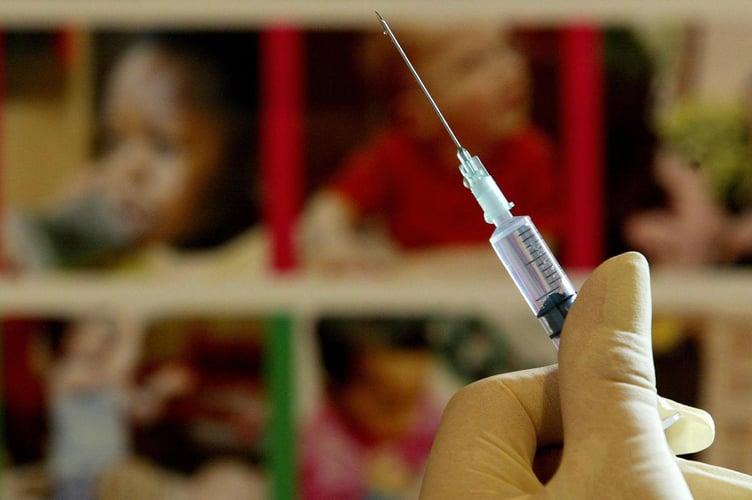Significantly fewer girls in Cornwall received the HPV vaccine in the last school year, new figures show.
It comes as health experts have urged young people to take up the now single-dose vaccine, as uptake across the country has improved slightly but struggles to recover after the Covid-19 pandemic.
The human papillomavirus vaccine is offered to all 12 to 13-year-olds in schools and community clinics. HPV is found in nearly all cervical cancer, but can also cause head and neck cancers, anal, and genital cancers.
Figures from the UK Health Security Agency show 64% of year 8 girls in Cornwall received the HPV jab in the 2023-24 academic year – down significantly from 70.8% the year before.
It was also a substantial fall from 78.4% in 2018-19, before the pandemic severely impacted the rollout of vaccines in schools.
Across England, there was a slight improvement in HPV vaccine coverage among year 8 girls, with uptake increasing from 71.3% in 2022-23 to 72.9% last year.
Yet it remained well below the 88% uptake rate in 2018-19.
Dr Sharif Ismail, consultant epidemiologist at UKHSA, said: "It's great to see HPV uptake rates increasing for when children are first offered the vaccine in year 8, but we need to ensure that more young people who do not take up the original offer for any reason are caught up.
"Good progress was made to catch up older children immediately after the pandemic and we need to ensure these efforts are sustained. Our overall uptake rates are still behind on pre-pandemic years."
She urged young people to take up the "potentially life-saving" vaccine when offered, adding people under 25 years old can contact their GP practice to get the jab if they missed it in school.
The figures also show 57% of year 8 boys in Cornwall received the vaccine in the recent academic year – a notable fall from 64.9% in 2022-23.
National uptake among the cohort reached 67.7% in 2023-24, an improvement from 65.2% the year before.
Steve Russell, national director for vaccinations and screening at NHS England, said supporting young people to get vaccinated is "vital to our ambition to eliminate cervical cancer by 2040".
He added the national rise in year 8 children receiving the vaccine is encouraging, but added nearly a third still do not have the "vital protection".
Cancer Research UK’s chief executive, Michelle Mitchell, said around 3,300 people are diagnosed with cervical cancer in the UK.
She added: "Thanks to the power of research and efforts of NHS staff, we can eliminate cervical cancer as a public health problem in our lifetime – the HPV vaccine combined with cervical screening can help to bring about a future virtually free from the disease.
"The science is clear: HPV vaccination is safe and effective, and I encourage all eligible people to take up these life-saving offers."




